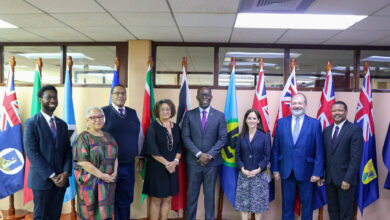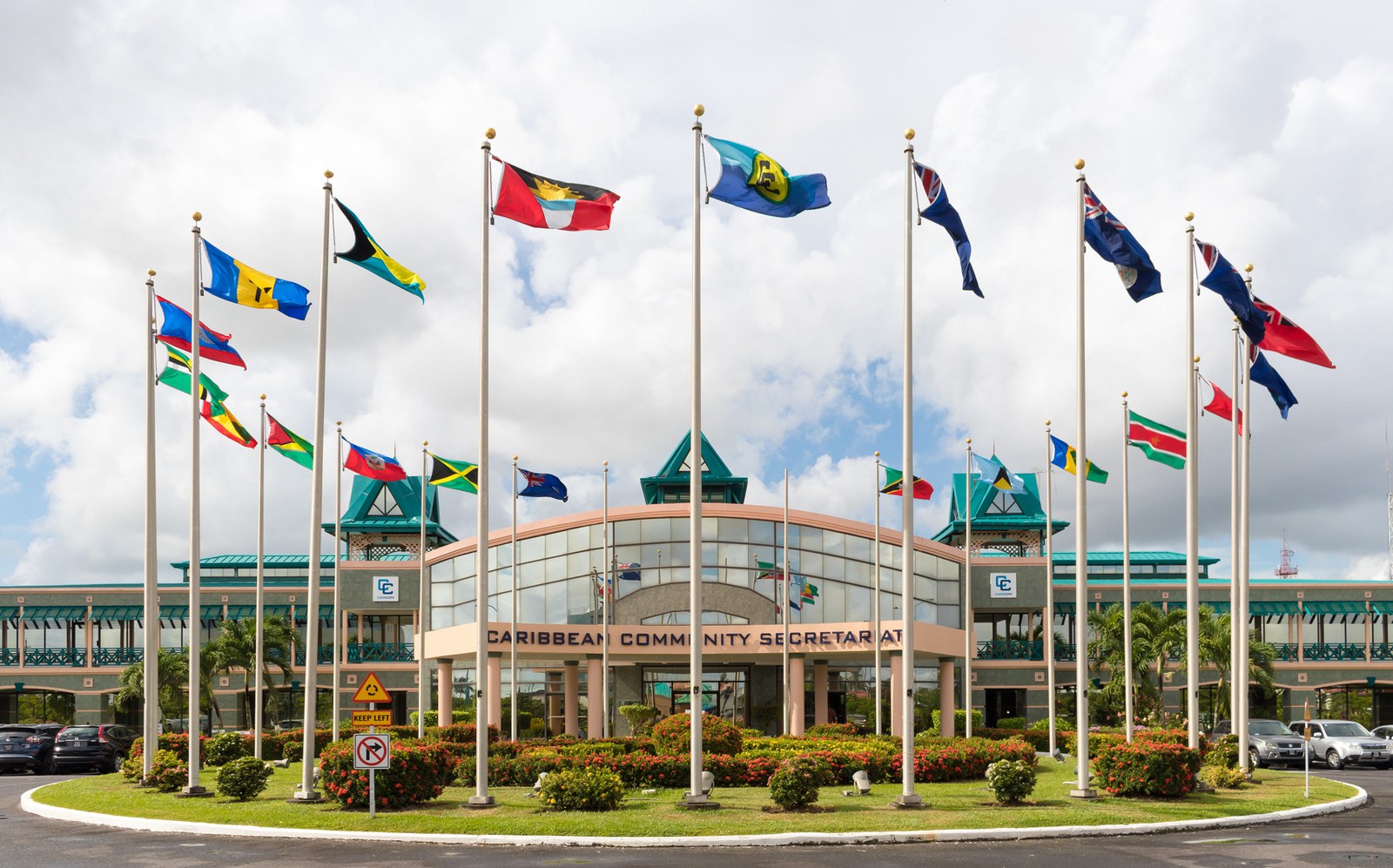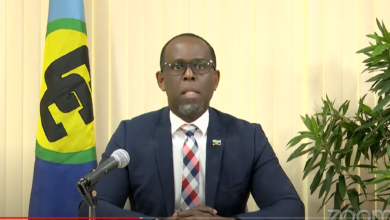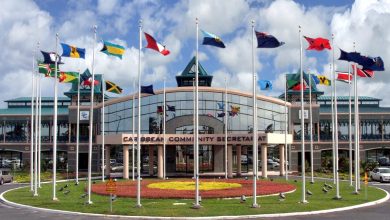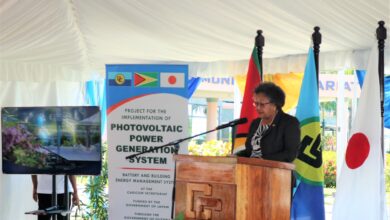(CARICOM Secretariat, Turkeyen, Greater Georgetown, Guyana) – Future regional economic development will depend on sound management of natural resources, the CARICOM Secretariat’s Ambassador Colin Granderson has said, noting that healthy ecosystems improve a country’s ability to bounce back from catastrophic events.
The Assistant Secretary-General for Foreign and Foreign Relations, who is also acting as Officer-in-Charge of the CARICOM Secretariat, was at the time speaking to regional environment officials who are meeting in Georgetown, Guyana, ahead of a global biodiversity conference, next month.
The multi-dimensional workshop at the Grand Coastal Hotel, 24-26 October 2018, is being held to assist Caribbean environment negotiators to prepare for the 14th Conference of Parties (COP) for Convention on Biological Diversity (CBD), 17-29 November in Ethiopia. In the three-day workshop, the stakeholders will also participate in a Regional Consultation for Phase 3 of the Programme for Capacity-Building related Multilateral Environmental Agreements (MEAs) in the African, Caribbean, Pacific (ACP) countries.
Nine Member States: Antigua and Barbuda, The Bahamas, Barbados, Guyana, St. Kitts and Nevis, Saint Lucia, St. Vincent and the Grenadines, Suriname, and Trinidad and Tobago, as well as the Organisation of Eastern Caribbean States (OECS) Commission are represented.
These preparatory sessions for CARICOM’s effective participation in global environmental negotiations are important deliverables of the Project for capacity-building related to the ACP-MEAs project, which is funded by the European Union with support from United Nations (UN) Environment.
Ambassador Granderson said the CARICOM Secretariat has been supporting Member States in preparations for negotiations of the CBD, the Nagoya Protocol on Access and Benefit-Sharing, and the Cartagena Protocol on Biosafety. This is the third such regional preparation for negotiations of the Convention on Biological Diversity and its Protocols.
He said the meeting comes at a pivotal time when the recently released Report of the Inter-Governmental Panel on Climate Change supports the concern of Small Island Developing States that their very existence will be threatened by a 1.5-degree rise, much less a 2-degree temperature rise.
Reminding the participants of the devastating hurricane seasons in 2017 and underscoring the importance of building resilience “in its broadest sense,” Ambassador Granderson noted that the Regional Strategic Plan for the Caribbean Community 2015-2019 outlines practical measures to build economic, social and environmental resilience.
The Community Strategic Plan, he added, reflects an understanding that for the Region to weather the literal and figurative storms, “we need to develop and adopt a more integrated approach to how we plan our development.”
And, he said, the role of regional biodiversity experts is therefore critical, given CARICOM countries’ reliance of their natural resources in their economic constructs.
Underlining the importance of this regional preparation for the Conference on biodiversity, Ms Amrikha Singh, Programme Manager for Sustainable Development at the CARICOM Secretariat said “as a region we perform best when we are moving as a team.”
She added that the ACP-MEAs Project allows for that “coming together” before the Region goes to an important international undertaking like the COP14 of the CBD.
According to Dr Patrick Chesney, Programme Coordinator for the ACP-MEAs Project, this preparation is also important as the commitment period for the Aichi Biodiversity Targets ends 2020. The need to plan ahead on how the Caribbean’s priorities will be accommodated in a post 2020 agreement is critical, he added.
The second phase of the ACP-MEAs project is scheduled to come to an end in December 2018. While negotiations are ongoing for the third phase, the CARICOM Secretariat is, through this workshop, seeking guidance from Member States on their national priorities to formulate an overarching regional document.
The ACP-MEAs Phase 3 is expected to focus on enforcement and compliance of the biodiversity and chemicals and waste clusters of MEAs related to the Convention on Biodiversity, the Convention on the International Trade of Endangered Species (CITES) and the Convention on Migratory Species (CMS). Elements on chemicals and waste refer to the Basel, Rotterdam, Stockholm and Minamata conventions.
Ambassador Granderson noted that the biodiversity, chemicals and waste conventions are about to develop and adopt new sets of commitments that will be based on technical assistance needs from Parties that are the most vulnerable to the adverse effects of the loss of biodiversity and negative impacts of chemicals and waste on human health. Attention will be placed on the technical assistance and legislative frameworks adopted so far in the three ACP regions to promote effective enforcement of the commitments in those areas. The promotion of improved compliance and enforcement of key policies and legislations; specific protocols and mechanisms that facilitate the sharing of information and experiences; and the provision of sound environmental data and tools to policy makers to close the gap between the science and policy action experienced at the national level are also expected in Phase 3.
Against this background, Ambassador Granderson said the Secretariat is asking that in developing and proposing interventions, “we ensure that we build in inclusiveness and engagement of our major groups: Women, youth, children, farmers, fishers, academia and last but not least the business community.”



